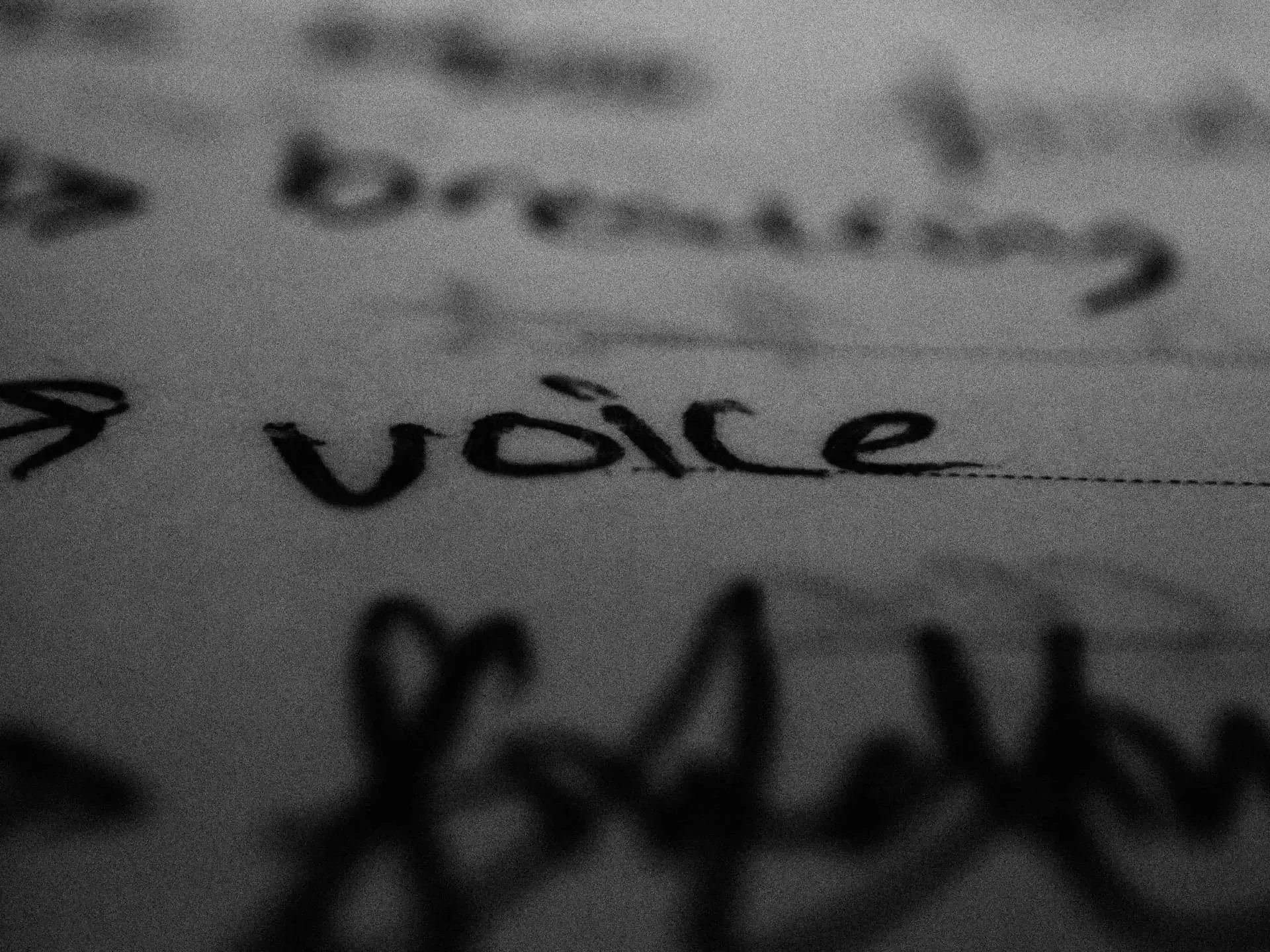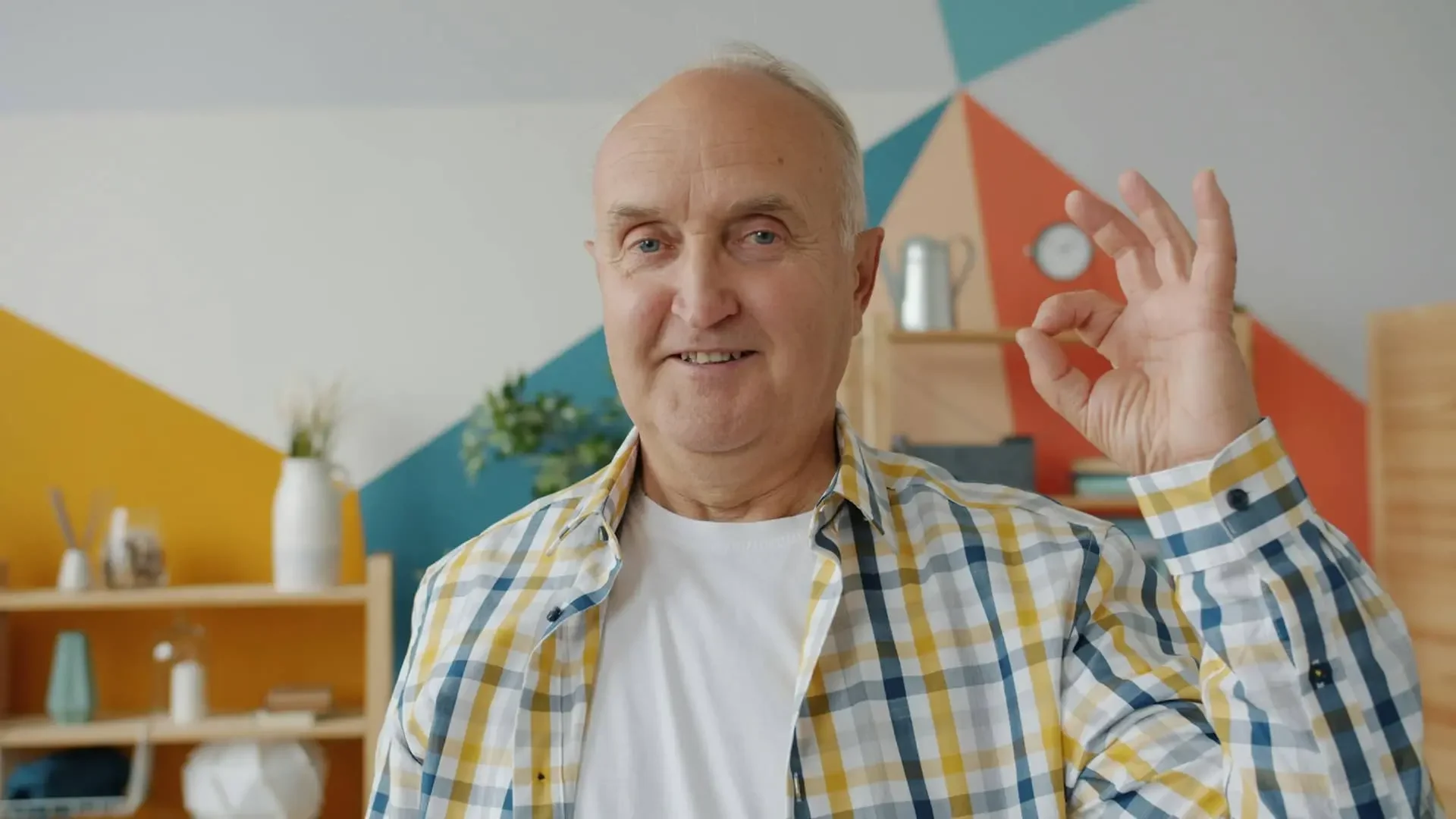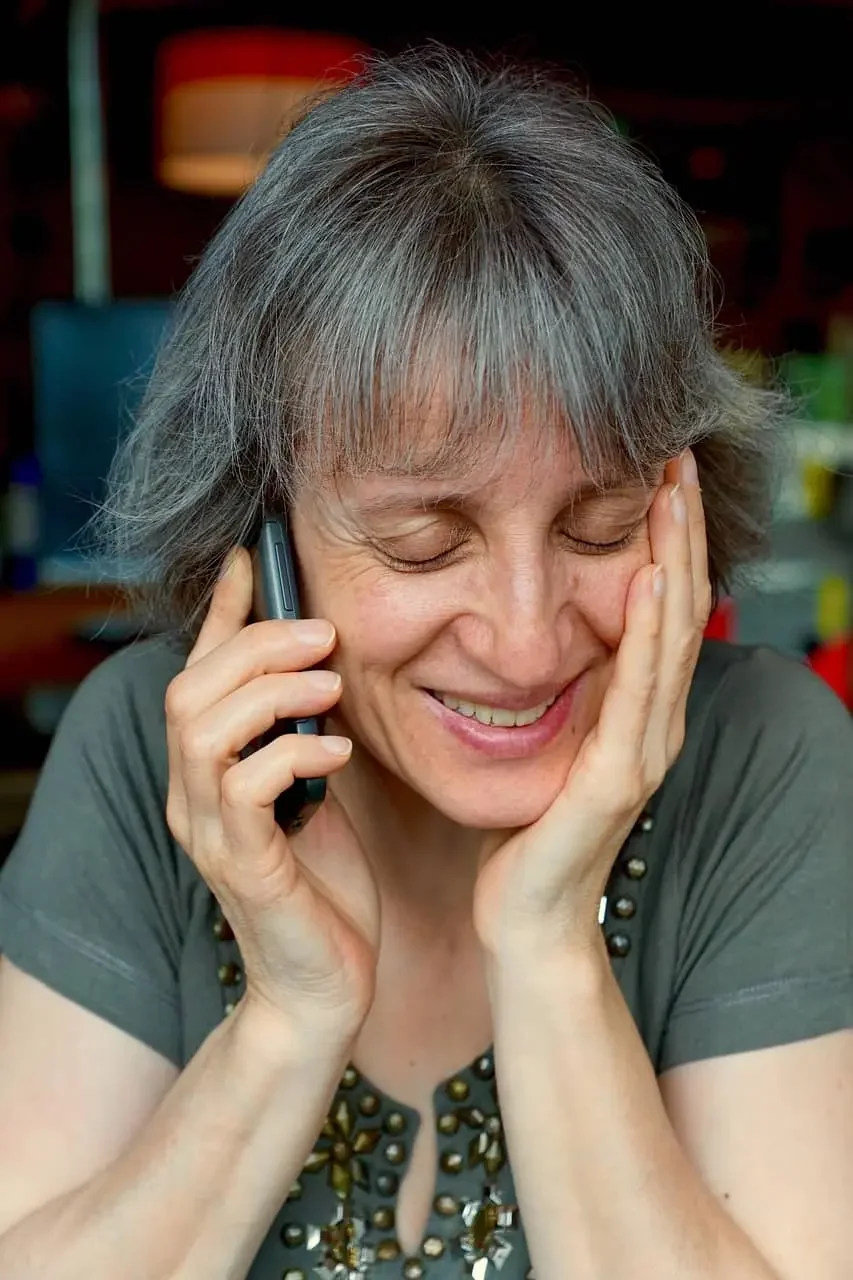Voice Disorder Assessment and Evidence-Based Voice Therapy in Boynton Beach
What Is a Voice Disorder?
A voice disorder affects the pitch, loudness, or quality of your voice in ways that disrupt communication and daily activities.
If you're experiencing persistent hoarseness, vocal strain, breathiness, or discomfort when speaking, you may be dealing with a voice disorder that requires professional assessment by an in-home speech therapist in Boynton Beach.
Learn About In-Home Voice Disorder Assessment in Boynton Beach
Complete this quick form and Nina Minervini will contact you within 24 hours to discuss your needs.
Voice disorders impact people from all walks of life: teachers who lose their voice by midday, professionals struggling through presentations, singers who can't hit their usual range, or individuals recovering from medical procedures. These conditions aren't just inconvenient; they can affect your professional success, social connections, and overall quality of life.
Common Voice Disorders Assessed
Structural Voice Disorders
Vocal nodules (singer's nodes or teacher's nodes)
Vocal fold polyps or cysts
Contact ulcers or granulomas
Vocal fold hemorrhage or scarring
Laryngeal papillomas
Age-related vocal fold changes (presbyphonia)
Functional Voice Disorders
Vocal fatigue syndrome
Chronic throat clearing or coughing
Phonotraumatic behaviors
Habitual voice misuse patterns
Neurological Voice Disorders
Spasmodic dysphonia
Vocal tremor
Post-stroke voice impairment
Multiple sclerosis affecting voice
ALS or other progressive conditions
Medical/Inflammatory Conditions
Chronic laryngitis
Vocal fold edema or swelling
Reflux laryngitis (LPR)
Post-surgical voice changes
Post-intubation dysphonia
Paradoxical vocal fold motion
Comprehensive Voice Disorder Assessment Process
What to Expect During Your Evaluation
With Palm Beach Speech Therapy, your voice disorder assessment is thorough, personalized, and designed to identify the root causes of your vocal difficulties. Nina Minervini, M.S. CCC-SLP, uses a combination of clinical expertise and evidence-based assessment tools to create a complete picture of your voice function.
Initial Case History & Intake
Your assessment begins with an in-depth discussion of your voice concerns, medical history, and daily vocal demands. Nina explores:
Timeline and progression of voice symptoms
Impact on work, social life, and communication
Previous medical evaluations or treatments
Vocal demands (occupation, hobbies, lifestyle)
Medications and health conditions affecting voice
Hydration habits, reflux symptoms, and vocal hygiene
Environmental factors (allergens, irritants, dry air)
Perceptual Voice Analysis
Nina conducts a detailed listening evaluation to assess the characteristics of your voice across different speaking tasks:
Voice quality: hoarseness, breathiness, roughness, strain
Pitch: appropriateness, range, and variability
Loudness: volume control and projection ability
Resonance: nasal or oral resonance balance
Prosody: intonation and speech melody patterns
You'll be asked to perform various vocal tasks (sustained vowels, counting, reading passages, and conversational speech) to evaluate how your voice functions in different contexts.
Acoustic and Aerodynamic Measurement
When appropriate, your assessment includes instrumental analysis using specialized software and equipment:
Acoustic analysis: measuring jitter (pitch irregularity), shimmer (loudness irregularity), and harmonic-to-noise ratio
Fundamental frequency analysis: determining your pitch range and baseline
Maximum phonation time: assessing breath support and vocal fold closure
s/z ratio: evaluating vocal fold efficiency
Speaking rate and respiratory patterns: analyzing coordination of breathing and voicing
Laryngeal Function Assessment
Nina evaluates how your larynx (voice box) functions during speech through:
Laryngeal palpation: assessing muscle tension and laryngeal posture
Tension screening: identifying areas of excessive tension in neck, jaw, and throat
Respiratory-phonatory coordination: observing breath support patterns
Postural analysis: evaluating body alignment affecting voice production
Functional Voice Use Evaluation
Understanding how you use your voice in real-life situations is critical. Nina assesses:
Vocal demands in your workplace or daily routine
Speaking duration and intensity requirements
Background noise or acoustically challenging environments
Communication breakdowns or avoidance behaviors
Compensatory strategies you've developed
Standardized Voice Assessment Tools
Your evaluation may include validated instruments such as:
Voice Handicap Index (VHI-10 or VHI-30): measuring the impact of voice problems on your life
GRBAS Scale: rating voice quality characteristics
Consensus Auditory-Perceptual Evaluation of Voice (CAPE-V): standardized perceptual rating
Vocal Fatigue Index: assessing tiredness and recovery of voice
Comprehensive Written Report
After your assessment, you'll receive a detailed written summary including:
Clinical findings and diagnostic impressions
Contributing factors to your voice disorder
Baseline measurements for tracking progress
Specific therapy recommendations
Home practice strategies
Referral recommendations (if ENT evaluation is needed)
Expected therapy duration and prognosis
Evidence-Based Voice Therapy Approaches
Personalized Treatment Plans for Lasting Results
Following your voice disorder assessment in Boynton Beach, Nina develops an individualized therapy plan targeting the specific factors contributing to your voice disorder. Treatment is never one-size-fits-all, and your plan reflects your unique vocal needs, lifestyle demands, and therapy goals.
Core Voice Therapy Techniques
Vocal Hygiene Education The foundation of voice recovery involves learning to care for your vocal mechanism:
Hydration strategies for optimal vocal fold lubrication
Identifying and eliminating phonotraumatic behaviors
Managing environmental factors (humidity, allergens, irritants)
Lifestyle modifications for vocal health
Understanding the impact of reflux, medications, and systemic health
Resonant Voice Therapy (RVT) An evidence-based approach that retrains easy, resonant voice production:
Achieving forward resonance and oral vibratory sensations
Reducing laryngeal tension and effort
Establishing efficient voice production patterns
Generalization to conversational speech
Excellent for muscle tension dysphonia and phonotrauma
SPEAK OUT® Voice Therapy For individuals with Parkinson's disease or neurological voice disorders:
High-effort, intensive therapy approach
Focus on increasing vocal loudness and clarity
Recalibrating internal perception of loudness
Improving breath support and articulation
Research-proven effectiveness for Parkinson's voice
Semi-Occluded Vocal Tract (SOVT) Exercises Using straw phonation, lip trills, and other techniques to:
Reduce vocal fold impact stress
Create favorable pressure conditions for voice production
Warm up the voice safely
Rehabilitate injured vocal folds
Improve vocal efficiency with minimal effort
Flow Phonation & Breath Coordination Teaching easy voice onset and smooth phonation:
Eliminating hard glottal attacks
Coordinating breathing with speech phrases
Optimal breath support without excessive tension
Reducing vocal fold collision forces
Building vocal endurance
Confidential Voice & Vocal Rest Strategies For acute vocal fold injuries or severe vocal fatigue:
Strategic voice use planning
Modified communication during healing
Alternative communication methods when needed
Gradual return to full voice use
Posture, Alignment & Tension Release Addressing the whole-body contribution to voice:
Optimal postural alignment for voice production
Releasing neck, jaw, and tongue tension
Body awareness and proprioception
Stretching and relaxation techniques
Ergonomic modifications for vocal professionals
Specialized Treatment for Specific Populations
Professional Voice Users: Teachers, salespeople, customer service representatives, clergy, attorneys, and other high-demand vocal professionals receive targeted strategies for vocal conservation, projection techniques, and classroom or workplace modifications.
Performers & Singers: Therapy is coordinated with your performance schedule and artistic goals, addressing technique while preserving your unique vocal quality and style.
Post-Surgical Rehabilitation: If you've had vocal fold surgery, polyp removal, or other laryngeal procedures, therapy focuses on optimal healing, preventing compensatory behaviors, and restoring voice function.
Aging Voice (Presbyphonia): Treatment addresses age-related vocal fold changes through strengthening exercises, improved breath support, and strategies to maintain vocal vitality.
When to Seek a Voice Disorder Assessment
Signs You May Need Professional Voice Evaluation
Don't wait until your voice problem becomes severe or chronic. Early intervention leads to faster recovery and prevents compensatory patterns from becoming ingrained. Consider scheduling a voice disorder assessment in Boynton Beach if you're experiencing:
Persistent Symptoms (Lasting 2+ Weeks):
Hoarseness or raspy voice quality
Breathiness or air leaking through your voice
Vocal fatigue or voice "giving out"
Reduced pitch range or vocal flexibility
Loss of singing voice or difficulty with songs you used to sing easily
Daily Communication Challenges:
People frequently asking you to repeat yourself
Straining or pushing to be heard
Avoiding phone calls or social situations due to voice concerns
Voice worsening as the day progresses
Needing to rest your voice regularly
Physical Discomfort:
Throat pain or discomfort when speaking
Sensation of a lump in your throat
Excessive throat clearing or coughing
Neck or jaw tension related to voice use
Shortness of breath while speaking
Professional or Social Impact:
Missing work due to voice problems
Difficulty fulfilling job responsibilities (teaching, presenting, customer service)
Withdrawing from social activities
Anxiety about voice reliability
The Importance of ENT Evaluation
While voice therapy addresses functional aspects of voice production, some voice disorders require medical evaluation and treatment. Nina Minervini works collaboratively with ear, nose, and throat (ENT) physicians to ensure comprehensive care.
You should see an ENT (laryngologist) before or alongside speech therapy if you have:
Hoarseness lasting more than 2-3 weeks
Complete voice loss (aphonia)
Blood in saliva or phlegm
Difficulty swallowing or breathing
Lump or mass sensation in the throat or neck
History of smoking or heavy alcohol use
Persistent throat or ear pain
Recent neck or throat surgery
Nina can help coordinate referrals to local ENT specialists and will collaborate on your care plan based on laryngoscopy findings and medical recommendations.
Schedule Your Voice Disorder Assessment in Boynton Beach
Take the First Step Toward Vocal Recovery
You don't have to live with voice problems. Whether you're struggling with chronic hoarseness, vocal fatigue, or difficulty being heard, professional voice disorder assessment and therapy can help you reclaim your voice and your confidence.
Ready to get started?
📞 Call: (561) 797-2343
📧 Email: ninaminervini11@gmail.com
Why Choose Nina for Voice Disorder Assessment in Boynton Beach
Expert, Personalized Care You Can Trust
Board-Certified Expertise: Nina Minervini, M.S. CCC-SLP, is a certified speech-language pathologist with extensive training in voice disorders. Her clinical expertise includes working with diverse adult populations across medical, home health, and outpatient settings. Nina stays current with the latest research and therapeutic approaches through continuing education and professional development.
Individualized, One-on-One Sessions: You'll never be handed a generic exercise sheet or shuffled through a cookie-cutter program. Every assessment and therapy session is tailored specifically to your voice, your life, and your goals. Nina takes the time to understand what matters most to you and designs treatment accordingly.
Convenient In-Home and Telehealth Services: Voice therapy comes to you. Nina provides services in the comfort of your home throughout Boynton Beach, Delray Beach, Boca Raton, and surrounding Palm Beach County communities. In-home sessions eliminate travel stress and allow for assessment and treatment in your natural communication environment.
Collaborative Medical Care: Nina works closely with ENT physicians, pulmonologists, neurologists, and other medical providers to ensure coordinated care. If you haven't yet been evaluated by an ear, nose, and throat specialist, Nina will guide you through appropriate referrals while beginning therapy for functional aspects of your voice disorder.
Evidence-Based Practice Standards: All assessment protocols and therapy techniques align with American Speech-Language-Hearing Association (ASHA) guidelines and current peer-reviewed research. You receive treatment backed by science, not trends or unproven methods.
Flexible Scheduling & Telehealth Options: Nina understands that busy schedules and mobility challenges can make accessing therapy difficult. Flexible appointment times and virtual therapy sessions (where appropriate) ensure you can maintain consistent treatment.
Focus on Functional Outcomes: Therapy isn't just about sounding better in the clinic—it's about successfully using your voice in the situations that matter. Nina emphasizes carryover to work, social settings, and daily communication, with real-world practice and problem-solving.
Serving Boynton Beach and Surrounding Communities
Palm Beach Speech Therapy proudly serves individuals throughout Palm Beach County, including:
Boynton Beach
Delray Beach
Boca Raton
Lake Worth
Lantana
West Boynton Beach
Ocean Ridge
Gulf Stream
Briny Breezes
Frequently Asked Questions About Voice Disorder Assessment
How long does a voice disorder assessment take?
A comprehensive voice evaluation typically takes 60-75 minutes. This includes case history, perceptual analysis, instrumental measurement, functional assessment, and discussion of findings and recommendations. Nina takes the time needed to thoroughly understand your voice disorder—you'll never feel rushed.
Do I need a doctor's referral for voice therapy?
In Florida, speech-language pathologists can evaluate and treat voice disorders without a physician referral. However, if you have persistent hoarseness or a medical condition affecting your vocal folds, an ENT evaluation is strongly recommended to rule out structural pathology or medical issues requiring treatment. Nina can guide you on whether medical clearance is advisable before beginning therapy.
Will my insurance cover voice disorder assessment and therapy?
Many insurance plans cover speech therapy for voice disorders when medically necessary. Coverage varies by plan and diagnosis. Nina accepts Medicare. Private pay options are also available.
Are telehealth voice therapy sessions available?
Yes, virtual voice therapy is available throughout Florida for appropriate cases. Following your initial in-person assessment, many therapy sessions can be conducted effectively via secure video platform. Telehealth is particularly beneficial for maintenance phases, vocal hygiene education, and clients with transportation challenges. However, initial assessments requiring hands-on laryngeal palpation are best completed in person.
How many therapy sessions will I need?
This varies considerably based on the nature and severity of your voice disorder, contributing factors, and your adherence to home practice. Some functional voice disorders respond to therapy in 4-8 sessions, while chronic or complex cases may require longer intervention. Nina will discuss expected therapy duration during your assessment and monitors progress regularly.
What if my voice problem is related to my job?
Many voice disorders are occupational in nature. Nina has extensive experience with professional voice users and can provide workplace-specific strategies, documentation for accommodations, and functional therapy targeting your job demands. Teachers, call center workers, fitness instructors, and other high-demand vocal professionals benefit from targeted intervention.
Is voice therapy painful or difficult?
Voice therapy should never hurt. The goal is to find easier, more efficient ways to produce voice, not to force or strain. Some exercises may feel unfamiliar at first, and you might experience healthy muscle tiredness as you strengthen your voice, but therapy should be comfortable. Nina carefully monitors your response and adjusts techniques accordingly.
Can children receive voice disorder assessment?
Palm Beach Speech Therapy specializes in adult voice disorders. For pediatric voice concerns, Nina can provide referrals to specialists working with children.
Let’s do this together.
Fill out the form below and I’ll contact you within 24 hours to discuss your needs and schedule a session.






